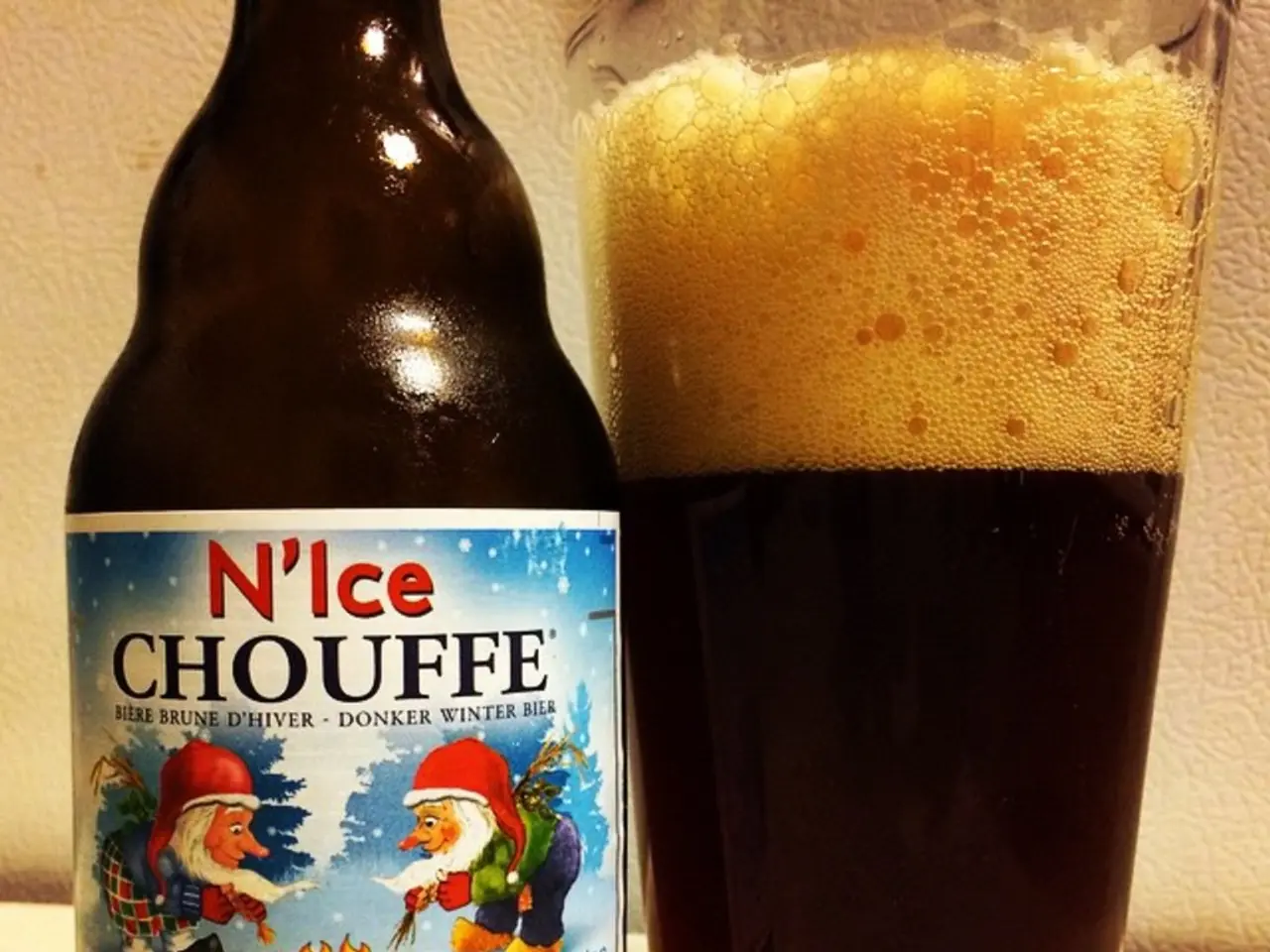Faster Beer Brewing Claimed by Scientists Due to White Noise Influence
In a groundbreaking study published in the journal Food Research International, researchers have discovered that sound and vibration can significantly impact the speed and quality of fermentation in various food products beyond beer[1]. This finding opens up new possibilities for optimizing flavour profiles and production efficiency in a wide range of fermented goods, from chocolate to miso, and potentially even coffee and tea.
The study reveals that microbial communities in fermentation naturally respond to ambient energy sources, including sound. By tuning sonic stimuli, it is possible to enhance fermentation outcomes or reduce resource inputs, potentially improving flavour profiles and speed[1]. This innovative approach is already being employed by some manufacturers, such as a Japanese miso brewery that uses "sonic aging," a method that applies vibrational energy to enhance microbial fermentation[3].
This research extends beyond traditional fermentation parameters, which primarily focus on pH, temperature, and nutrients. Sonic stimulation represents an innovative, non-chemical method to optimize product quality and yield[1][3].
One area where this research could have a significant impact is in the brewing industry. By using white noise during fermentation, breweries could potentially increase production without compromising quality. Faster fermentation boosts production efficiency without sacrificing quality, and it has little effect on volatile compounds, preserving flavour and aroma[2].
A team led by Adadi has conducted experiments using specialized devices, known as linear actuators (LATs), to transmit white noise into beer during fermentation[2]. Their findings suggest that sound, specifically white noise, may play a role in accelerating the fermentation process in beer. The study indicates that sound energy stimulates cellular processes and metabolic pathways, enhancing yeast growth and activity[2].
Interestingly, the study did not report any marked changes in the flavour of the beer due to the use of white noise during fermentation[2]. This suggests that while sound can influence the fermentation process, it does not necessarily alter the final product's flavour composition.
Adadi and his team's work could potentially have implications outside of the alcohol industry, such as faster production of yogurt, kombucha, sauerkraut, and kimchi. If audible sound stimulation proves scalable, it could revolutionize fermentation technology and spark innovations across other fermented products such as wine and spirits[3].
In summary, sound and vibration are recognized as non-traditional fermentation parameters that can influence speed and quality in diverse fermented products, including chocolate, miso, and likely coffee and tea, by affecting microbial behaviour[1][3]. This exciting development could lead to a future where fermentation processes are optimized using sound energy, enhancing production efficiency and product quality while preserving flavour and aroma.
[1] Adadi, R., et al. (2021). Sound as a Fermentation Parameter. Food Research International. [2] Adadi, R., et al. (2022). The Effect of White Noise on Beer Fermentation. Journal of Brewing Science. [3] Tanaka, S. (2019). The Art of Sonic Aging: A New Approach to Miso Fermentation. Food Technology and Biotechnology.
Read also:
- Inadequate supply of accessible housing overlooks London's disabled community
- Strange discovery in EU: Rabbits found with unusual appendages resembling tentacles on their heads
- Duration of a Travelling Blood Clot: Time Scale Explained
- Fainting versus Seizures: Overlaps, Distinctions, and Proper Responses








